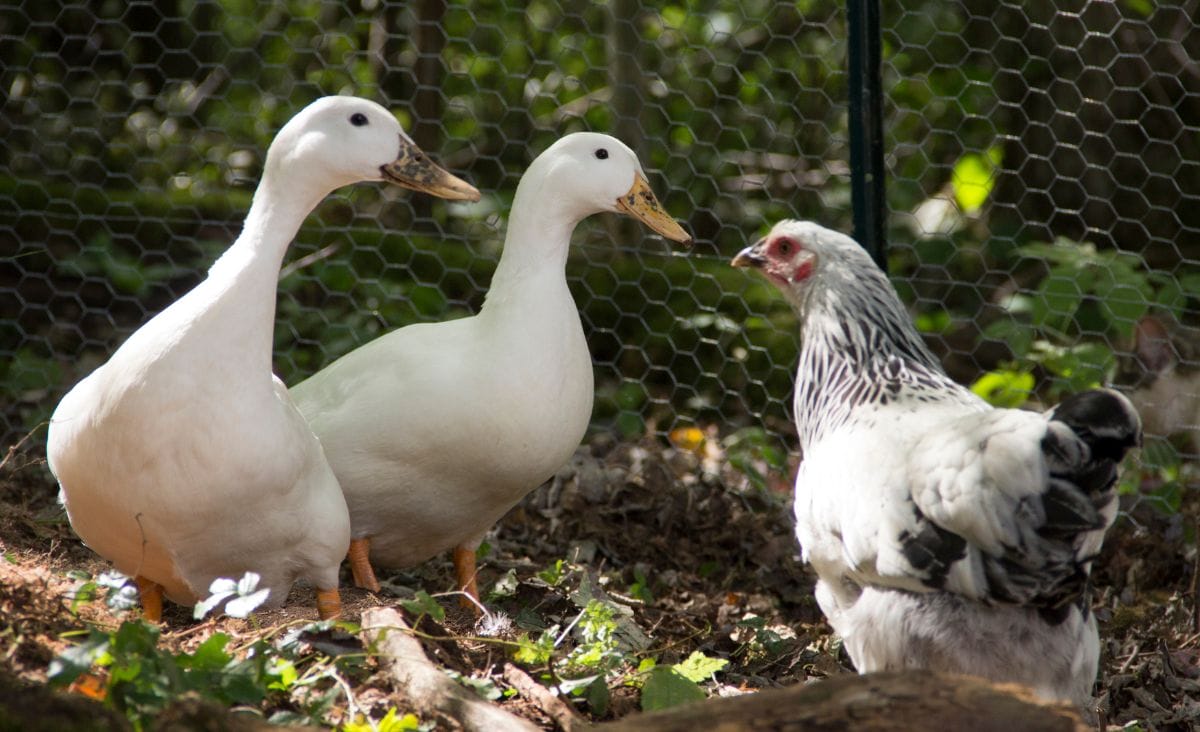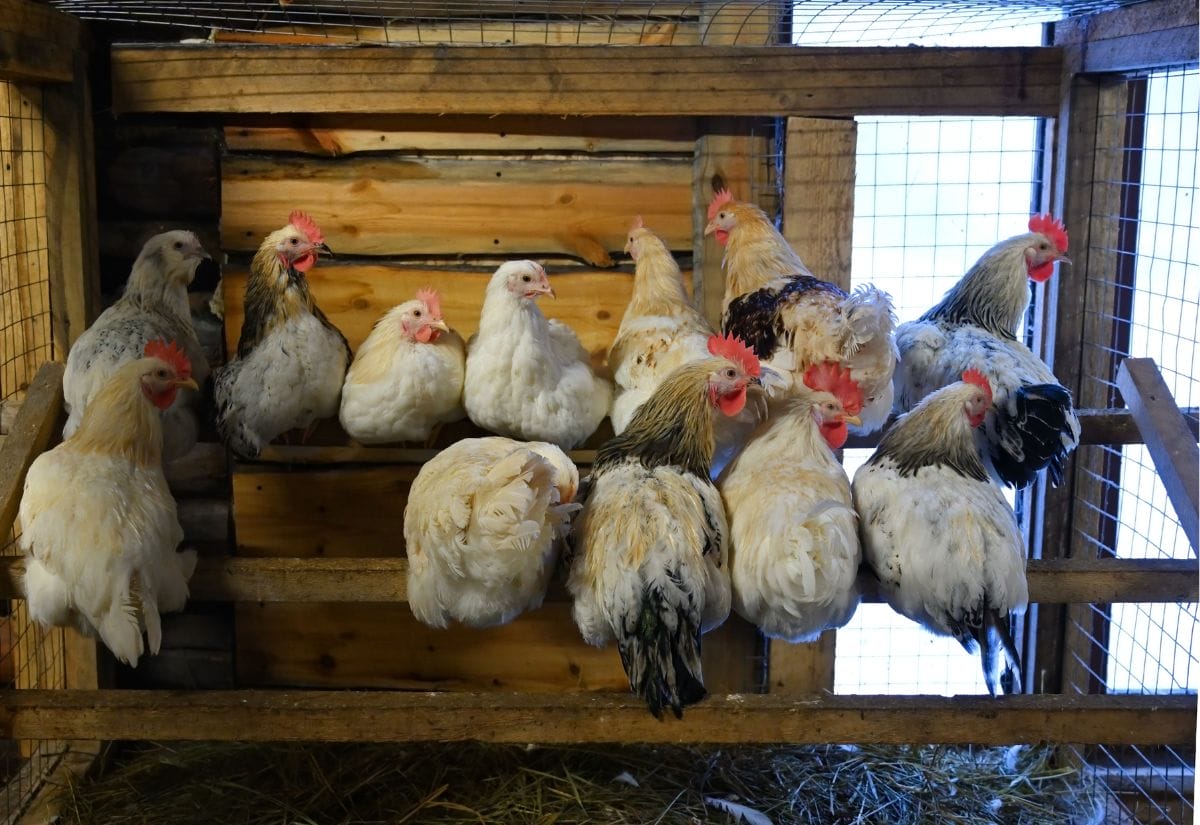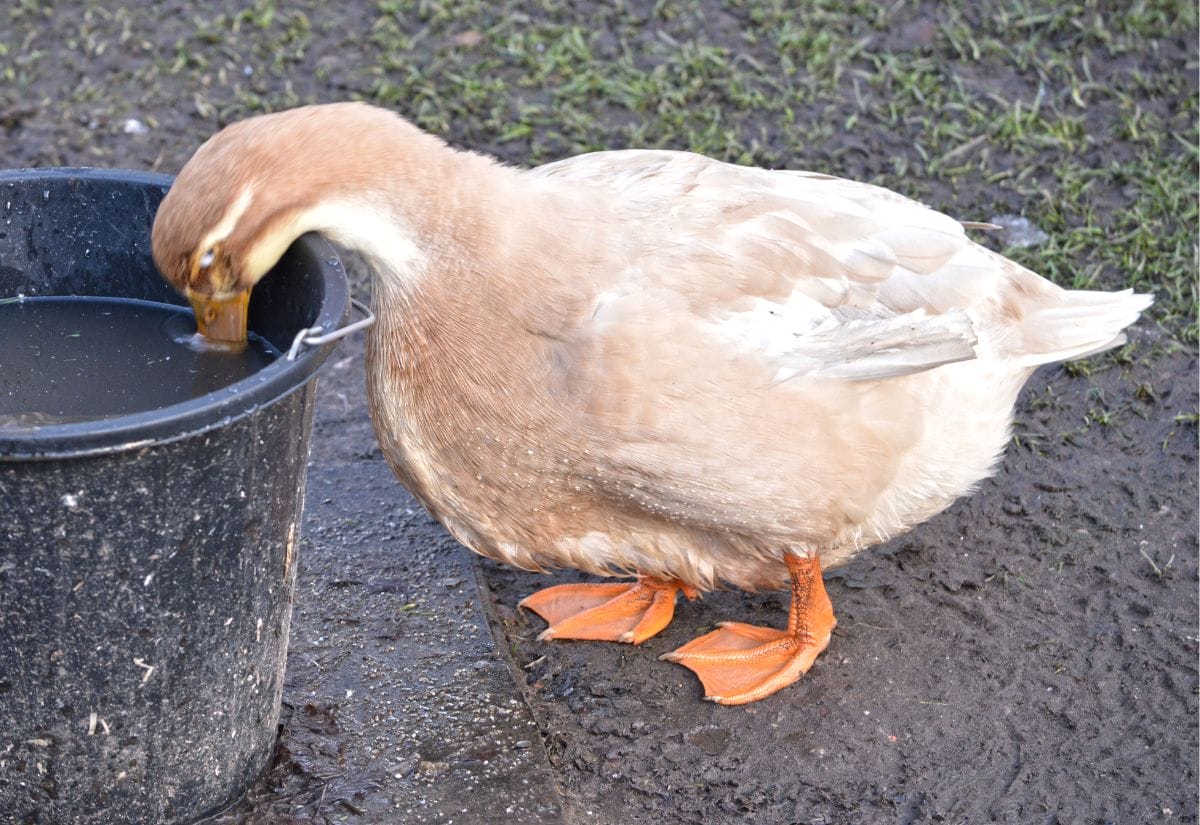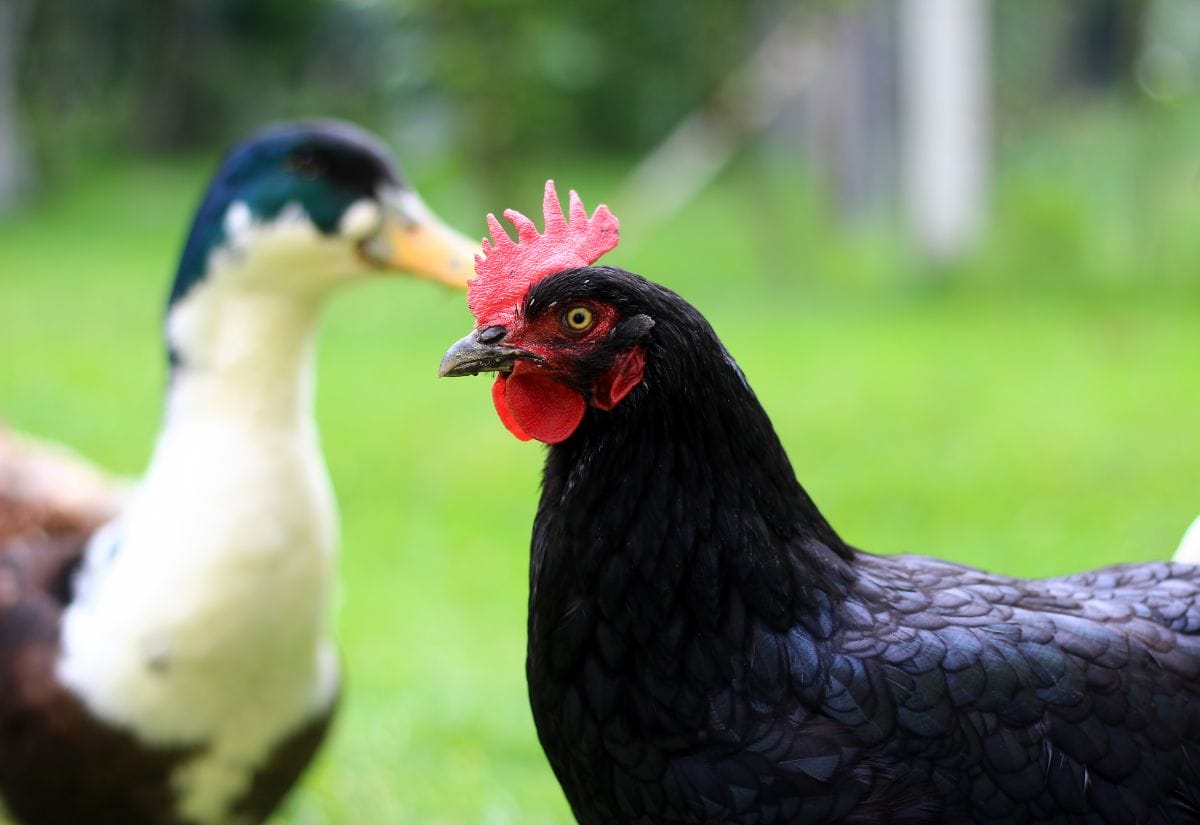Can Chickens and Ducks Live Together? Real-Life Tips That Work
Want to raise chickens and ducks together? Here’s what works, what doesn’t, and how to house and care for a mixed flock without the mess.

Keeping chickens and ducks together sounds like a dream—twice the eggs, double the fun, and just one coop to manage. I’ve done it, and let me tell you: it can work beautifully… but only if you understand what you’re getting into.
Chickens and ducks have different needs, behaviors, and quirks. They won’t naturally cohabitate well without a few thoughtful changes to their housing and care. The good news? You don’t need fancy gear or an elaborate setup. Just a little know-how and a willingness to tweak your routine.
In this post, I’ll walk you through everything I’ve learned from years of raising both birds side by side—what works, what doesn’t, and how to create a mixed flock that actually gets along.
If you’re exploring different types of poultry for your setup, you’ll want to read Guinea Eggs vs Chicken Eggs: Which Fits Your Homestead? to see how these two stack up.
Challenges of Housing Chickens and Ducks Together
Even the most peaceful backyard setup can go sideways fast if you don’t plan ahead. Here are the biggest hurdles to keeping chickens and ducks in one space—and why they matter.
Moisture and Mess
Ducks are walking water balloons. Chickens… not so much.
- Damp bedding can cause respiratory problems for chickens and lead to ammonia buildup.
- Wet floors become slippery and moldy fast.
- Ducks splash and spill, turning chicken feed to mush in minutes.
Tip: If your coop smells musty or your shavings are always soggy, it’s probably the ducks.
Sleeping Differences
Chickens want to roost high off the ground. Ducks nest on the floor in a soft, quiet spot.
Without separate sleep zones, you risk:
- Chickens trying to perch above sleeping ducks (and pooping on them)
- Ducks blocking access to roosts
- Conflict at bedtime, especially in tight quarters

Feeding Frustrations
Ducks eat fast and messy. Chickens prefer pecking at dry feed.
Problems include:
- Water in feed pans = soupy waste
- Ducks consuming more than their share
- Young ducklings needing extra niacin, which chicks don’t require
Unless you separate feed stations, you may wind up with nutritional gaps or wasted feed.
How to Make It Work in Real Life
If you’re willing to plan ahead, chickens and ducks can absolutely live together. I’ve done it in both small backyard pens and larger homestead coops. Here’s what made the biggest difference.
Design a Split Coop
Give each species what it naturally needs. That means:
- Separate sleep zones: Roosting bars for chickens, cozy floor corners for ducks.
- Dividers: Even a low board or bales of straw can define each area.
- Extra ventilation: Ducks make more moisture, so airflow matters.
Keep Duck Water Outside
Seriously, this one step changed everything.
- Use open buckets or troughs for ducks—placed on gravel or near a drain. We like to use shallow rubber tubs.
- No water inside the coop if you can avoid it.
- Chickens get a nipple waterer to keep things dry and clean.

Use Moisture-Friendly Bedding
You’ll need to clean more often than with chickens alone.
- Pine shavings or straw work well—avoid slick hay or newspaper.
- Go for the deep litter method if you want less frequent cleanouts.
- Check bedding daily during wet seasons or in tight spaces.
Feed Smarter, Not Harder
Ducks and chickens can eat the same basic feed as adults, but the logistics matter.
- Hang chicken feeders high enough that ducks can’t reach them easily.
- Use a separate dish for ducklings or mixed-age birds. Add a sprinkle of brewer’s yeast for niacin.
- Keep water and feed far apart to avoid soggy mash.
Know Your Birds
Personality plays a role. Some chickens bully. Some ducks are obnoxious. That’s just life.
Don’t be afraid to separate troublemakers if needed.
More space = fewer fights.
Observe closely after introducing new birds. Whenever you introduce new birds—whether chickens or ducks—it’s important to quarantine them first to protect your existing flock from illness or parasites.

Why You Shouldn’t Brood Chicks and Ducklings Together
It’s tempting to put everyone under one heat lamp and call it good—but it’s a recipe for disaster.
Here’s why chicks and ducklings shouldn’t be brooded together:
- Ducklings are wetter than you’d expect. They splash in water dishes, soak bedding, and raise humidity in the brooder box—putting chicks at serious risk for pasty butt, chilling, and respiratory trouble.
- Ducklings grow faster and get bigger quickly. Within a week, they can easily trample or crowd out smaller chicks.
- Different needs: Ducklings need more niacin. Chicks can get too much. That imbalance can cause leg issues in both.
Bottom line? Keep them separate, even if you raise them at the same time. It’s better for everyone.
If you’re planning to raise chicks, this guide to chick brooding explains exactly what baby chicks need to thrive from day one.
If you’re brooding ducklings for the first time, check out this helpful guide from Lake & River Studios on how to make a DIY duckling brooder. It’s simple, practical, and designed with ducklings’ unique needs in mind.
Common Questions About Mixing Ducks and Chickens
Still wondering if a mixed flock is right for you? Here are a few common questions I hear:
Want your ducks and chickens to share a coop peacefully? Save this post for practical tips that actually work!

So, can chickens and ducks live together? Yes—but not without some planning.
Managing moisture, giving each bird what it needs, and watching for personality clashes go a long way toward success. It’s not as hands-off as keeping just one species, but it’s completely doable—and honestly, kind of fun to watch.
If you’re still on the fence, start small. Try housing them in neighboring runs first. See how they interact. And remember: there’s no one right way to homestead—just the way that works best for your animals and your space.
Thinking about adding ducks to your homestead but not quite sold? Here are 5 reasons ducks make a fantastic (and surprisingly helpful) addition to your backyard setup.
Have you tried raising a mixed flock? Let me know in the comments what worked for you (and what didn’t)!





I’d love to have some information of keeping mixed breeds of ducks – pro’s and con’s.
I had 2 drakes and had to get read of them because they were trying to mate with the chickens .
I miss them they were fun so I am thinking to try one more time for a male and a female pair .
Any advise on this.
Thank you Stella.
I actually have an aviary for my quail and we keep some of our smallest bantams in with them. So far, it’s worked out great and the quail seem very happy to have a big pen wit room to jump and fly around whenever they want.
Wow! That’s really cool that they are getting along so well.
For the most part we haven’t had any problems with bantams and standards together– there was one instance where our two Australorps ganged up on our little Barred Rock and we ended up getting rid of the two of them (they were mean birds overall, and our girls are more pets than anything, so…). But for years our little cochin bantam maintained Queen-hood over ALL the others, big and small!
The quail with chickens is a big problem, though– we had a few coturnix and they could NOT handle being in with the chickens. We ended up putting them in a separate pen with our muscovy ducks, which worked surprisingly well. The ducks couldn’t care less about the spazzy little quail 😀
We always kept our ducks, chickens, Bantums, and turkeys together. Never had any issues. But we did free range and keep the water outside so we avoided most of the mess. The ducks slept and laid their eggs are n the floor on one end of the coop and the chickens and turkeys slept on the roosts on the other end. They worked all that out themselves. Lol
I have a pigeon in with my girls and haven’t had a problem. I put them together when the chickens were still young. He stays out of their way and has his own perches and food area high off the ground, out of reach of the girls. I zip tied a rabbit cage to the ceiling in the corner, added a perch, food and water, and three walls to keep out the elements.
We have our coop in a barn, the ducks (muskovy) prefer sleeping outside the coop but have no problem laying and sitting the in the nest boxes or going in for food. I usually get the largest clutches from those birds too. We free range and keep the waterers out of the barn in the summer but winter can get a little sloppy. We just keep adding more shavings around the waterer so it’s not an ice slick.